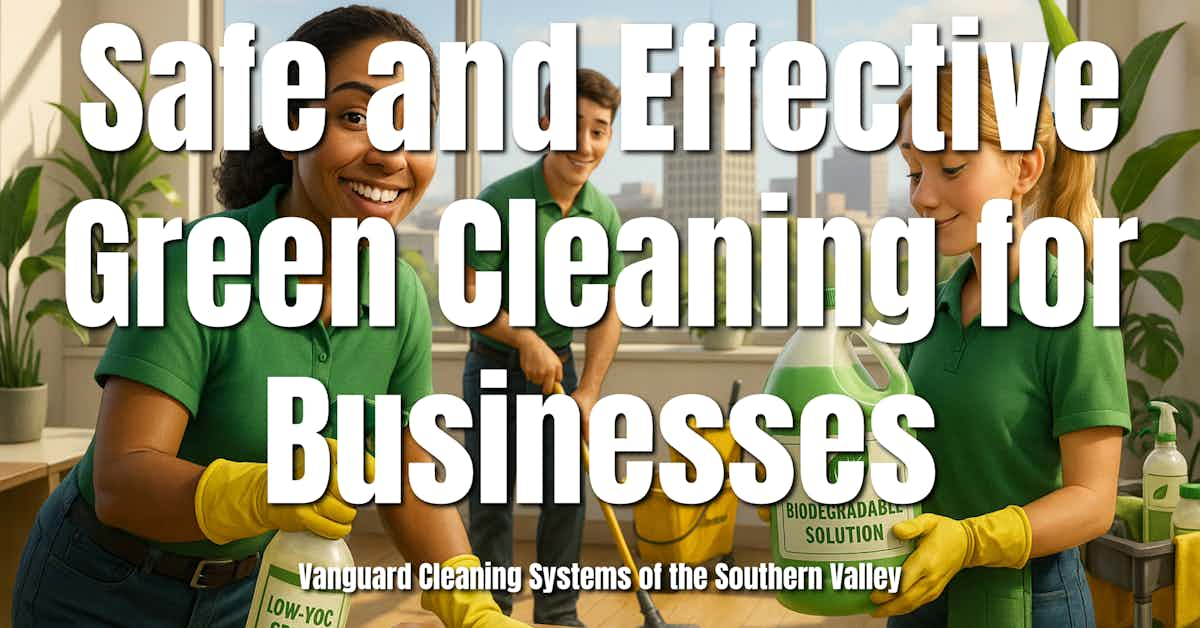Clean air ducts aren’t just about air quality—they’re about protecting health, cutting energy costs, and extending your HVAC’s life.

Why Choosing the Right Commercial Floor Cleaning Company Matters
Choosing the right commercial floor cleaning company is about more than cost—it's about protecting your facility’s image, safety, and bottom line. The right partner can preserve flooring investments, ensure compliance, and maintain a clean, professional environment. The wrong one can lead to damage, downtime, or liability.
This guide gives facility managers a practical, structured framework to evaluate, select, and manage a floor cleaning company for consistent, high-quality results.
Define Your Facility’s Needs
Before requesting bids, clearly outline your requirements:
- Floor types and finishes (VCT, polished concrete, terrazzo, epoxy, sealed wood)
- Service scope (daily cleaning, stripping, sealing, burnishing, grout restoration)
- Traffic volume and usage
- Square footage and accessibility
- Performance standards (sustainability goals, OSHA compliance, green certifications)
- Budget and quality expectations
Defining these ensures accurate quotes and fair comparisons.
Shortlist Qualified Vendors
Create a shortlist by sourcing from:
- Professional referrals through BOMA, IFMA, or other facility networks
- ISSA and Green Seal directories for certified contractors
- Online reviews and case studies with verified references
- On-site inspections of facilities they currently maintain
Aim for 3–5 candidates with relevant expertise.
Evaluate Experience and Credentials
When vetting vendors, confirm:
- Active business license and permits
- Comprehensive insurance coverage
- Certifications (ISSA CIMS, Green Seal, LEED experience)
- Years of operation and relevant project experience
- Documented safety and training programs
- Equipment condition and technology
Tip: Ask vendors for a demonstration of their cleaning methods and machines to verify noise levels, suction efficiency, and eco-friendliness.
Ask the Right Questions
Use these during RFP interviews or site visits:
- What is your cleaning process for each floor type?
- How do you prevent chemical or moisture damage?
- Can you share SDS documentation for all cleaning products?
- How do you minimize disruption in occupied buildings?
- What is your quality assurance protocol?
- How are staff trained, supervised, and certified?
- What warranties or service guarantees do you offer?
- Can you provide three references for similar properties?
- What’s your pricing model and escalation policy?
- How do you track sustainability performance?
Compare Proposals Objectively
Each proposal should include:
- Defined scope of work
- Frequency of services
- Staffing and supervision plan
- Chemicals and equipment list
- Safety and PPE protocols
- Quality control and reporting
- Pricing transparency
- Case studies or client references
Score vendors by experience, responsiveness, safety, and value—not just price.
Test Before You Commit
Run a pilot cleaning to evaluate:
- Surface cleanliness and gloss
- Odor, residue, or streaking
- Team professionalism
- Equipment noise and disruption
- Slip resistance post-cleaning
Use this trial as proof of performance before awarding a full contract.
Build a Strong Contract
Include these essentials:
- Detailed scope and schedule
- Service Level Agreements (SLAs)
- Corrective action clause (e.g., re-clean within 24 hours)
- Insurance and indemnity requirements
- Change-order process
- Confidentiality and compliance language
- Fixed pricing terms and renewal clauses
- Quarterly performance audits
Review contracts with legal or procurement teams before signing.
Manage Vendor Performance
After selection, ensure consistent quality with:
- Kick-off orientation and scope walkthrough
- Clear communication chain
- Monthly performance reviews
- Audit reports and checklists
- Annual evaluations based on KPIs like cost control and safety
Strong relationships lead to better service continuity and accountability.
Red Flags to Avoid
- Unusually low pricing
- No verifiable insurance or references
- Poor communication or vague proposals
- Lack of safety or training documentation
- Outdated or noisy equipment
- No written performance guarantees
If a vendor cannot provide proof of competence and coverage, move on.
Selection Checklist
| Category | Key Question |
|---|---|
| Licensing | Are they legally licensed and insured? |
| Experience | Do they handle facilities like yours? |
| Equipment | Are machines efficient and up to date? |
| Safety | Are technicians OSHA-trained? |
| Chemicals | Are they Green Seal or eco-certified? |
| Disruption | Can they work off-hours? |
| Quality | How is performance verified? |
| Pricing | Transparent and predictable? |
| References | Verified and recent? |
People Also Ask (PAA)
1. How often should commercial floors be professionally cleaned?
High-traffic areas may need daily care, while lower-traffic zones can be serviced weekly or monthly.
2. What certifications should a cleaning company have?
ISSA CIMS, Green Seal, or LEED-related credentials show proven quality and environmental commitment.
3. Can green products clean as effectively?
Yes. Modern formulations meet or exceed performance standards without harmful chemicals.
4. Should I ask for insurance proof?
Always. Require a certificate naming your organization as an additional insured.
5. How can I monitor quality after hiring?
Use audits, photos, and performance scorecards to verify results.
Frequently Asked Questions (FAQ)
Q1: How is a floor cleaning specialist different from janitorial staff?
Specialists handle deep maintenance—stripping, sealing, and refinishing—beyond daily cleaning.
Q2: How does regular cleaning impact floor lifespan?
Consistent maintenance prevents grit abrasion and coating wear, extending floor life by years.
Q3: How can I calculate ROI on floor cleaning?
Track reduced slip incidents, improved appearance, and fewer costly floor replacements.
Q4: Does cleaning disrupt operations?
Professional teams schedule during off-hours and isolate zones to minimize downtime.
Q5: What should I expect to pay?
Pricing varies by surface type and region, typically $0.15–$0.35 per square foot.
Conclusion
Clean, well-maintained floors reflect operational excellence and respect for occupants. Selecting the right commercial floor cleaning company is a strategic decision—one that safeguards assets, ensures safety, and supports your facility’s reputation.
Define your needs clearly, vet vendors thoroughly, and manage the relationship proactively to achieve consistent, measurable results.
Vanguard Cleaning Systems of the Ozarks' franchise-owned custodial service provider business cleans more than 8M sq. ft. weekly, maintaining an industry-topping 95+% of its customer base, year-over-year, and boasting more than 60 5-star Google reviews.
Need more capability from your vendor partners? --Let's talk.
In Oklahoma, dial 918-960-4450
In Arkansas, dial 479-717-2410
In Missouri, dial 417-812-9777

